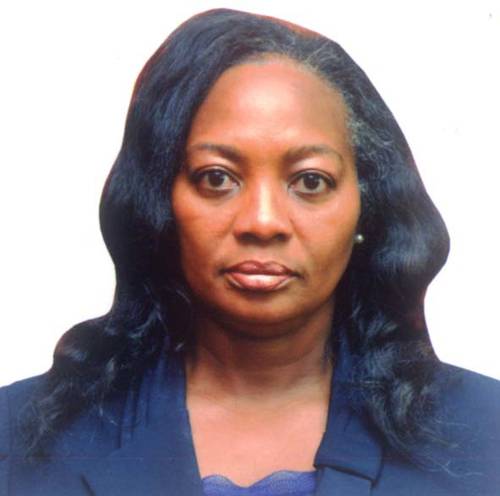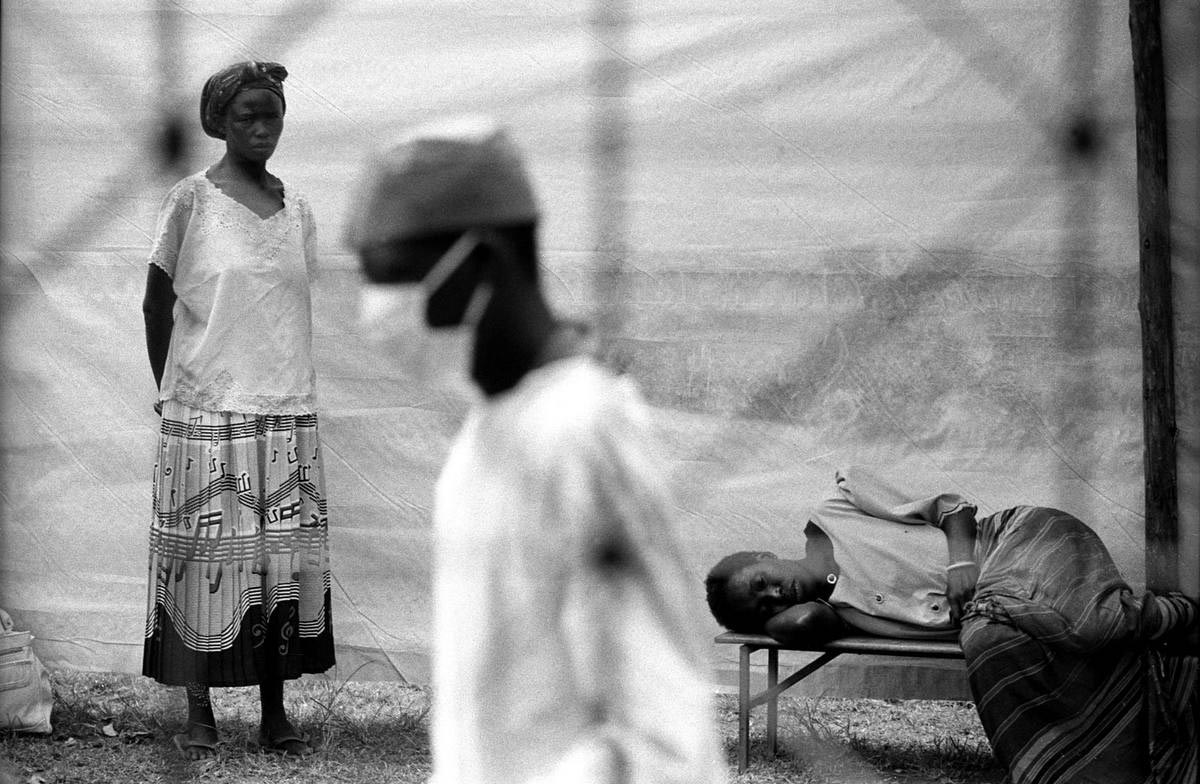Directors of First Consultant Hospital, Obalende and the bereaved families of the four Nigerians who died after contracting the Ebola Virus from Mr. Patrick Sawyer, a Liberian-American, are considering a major suit against the Liberian government for allowing Sawyer to come to Nigeria despite the fact that it was aware that he had contact with his sister who died recently of the deadly virus.

The dreaded Ebola virus was brought to Nigeria last month by the Liberian- who had contracted the disease in his country and then flew into Nigeria aboard an Asky flight to attend a conference of the Economic Community of West African States (ECOWAS) held in Calabar. Sawyer arrived Lagos on July 20 but was rushed to First Consultant Hospital where he lied to the medical officers on duty that he had malaria fever, a non-communicable illness.
He died five days after he was admitted into the hospital, but that was after some personnel and patients at the medical center had been exposed to the deadly virus through him. Among his victims were Dr. Ameyo Adadevoh, the senior consultant at the hospital, two nurses at the hospital, and an ECOWAS protocol officer who accompanied him on arrival in Nigeria.
For allowing Sawyer out of Liberia given the fact that the surveillance video at the Liberian airport showed that he was avoiding people at the airport, apparently because he did not want to have body contact, the Liberian government is believed to be liable.
The Liberian media had also reported how Sawyer personally took his sister to the hospital seeking treatment before she died. Being such a primary contact with his sister who died of Ebola was enough for the Liberian government to have quarantined him or put him under close watch as he was clearly a danger to public health. Instead, they allowed him into the airport and also allowed him to travel to Nigeria.
The directors of First Consultant believes that the Liberian government is further liable when its envoy in Lagos came to the hospital to try to persuade the hospital authorities and indeed force them to release Sawyer to travel to Calabar despite being down with Ebola.
They believe the envoy’s action established the culpability of the Liberian government and they intend to press for maximum damages in an appropriate law court, whether in Nigeria or in the international judicial system as someone has to be held responsible for the needless loss of lives at First Consultant Hospital, in what they called “biological warfare” inflicted by Sawyer and abetted by the Liberian government through its criminal negligence.
While five of those who had primary contacts with him and later tested positive to the virus had been successfully treated and discharged, four other Nigerians who have tested positive to the virus are currently in isolation undergoing treatment. Among those already discharged was a patient who was in the hospital at the time of Sawyer’s admission.
Also, close to 200 people who had secondary contacts, are currently being monitored.
The Liberian President had earlier apologised to the Nigerian government and also gave a hint that her government was aware that he may have contracted the disease from her sister and was being monitored but that “Sawyer ignored medical advice and escaped out of Liberia.”
The management of First Consultant Hospital, had released a statement saying it took necessary measures in line with international standards to prevent the spread of the virus.
In the statement, it noted that in spite of denial by Sawyer, who described himself as a Senior Diplomat from Liberia, adequate measures were taken, which included, isolating the patient, implementing barrier nursing and contacting the Lagos State Ministry of Health and the Federal Ministry of Health.
Narrating its encounter with the deceased, it said, “A 40-year-old gentleman came into the hospital with symptoms suggestive of malaria (fever, headache, extreme weakness) on Sunday, July 20, 2014. He was fully conscious and gave us his clinical history and told us he is a Senior Diplomat from Liberia.
Laboratory investigations confirmed malaria whilst other test for HIV, Hepatitis B&C were negative. He was admitted and treatment commenced.
“However, due to the fact that he was not responding to treatment but rather was developing haemorrhagic symptoms we further questioned him. He denied having been in contact with any persons with EVD at home, in any hospital or at any burial.”
Having treated for malaria with no significant improvement, the management carried out tests for possible infectious haemorrhagic disease, especially Ebola, based on fact that he was from Liberia, which had recently witness Ebola outbreak.
The hospital further stated that: “We refused for him to be let out of the hospital in spite of intense pressure, as we were told that he was a senior ECOWAS official and had an important role to play at the ECOWAS convention in Calabar, Cross River State.
“The initial test results from LUTH laboratory indicated a signal of possible Ebola virus, but required confirmation.
“We then took the further step of reaching out to Senior Officials in the office of the Secretary of Health of the United States of America who promptly assisted us with contacts at the centres for Disease Control and World Health Organisation Regional Laboratory Centre in Senegal.
“Working jointly with the State, Federal Agencies and International Agencies, we were able to obtain confirmation of Ebola (Zaire strain), (WHO Regional Center Lab-Senegal/Redeemes lab/LUTH Laboratory). He afterwards died on July 25, 2014 at about 6.50am.
“All agencies were promptly notified and in consultation with WHO, Regional Ebola Virus Disease Centre in Conakry, Guinea and Best Practices, we commenced temporary shut down of the hospital with immediate evacuation of in-house patients. “The appropriate professional removal of the body and its incineration under WHO guidelines, witnessed by all appropriate agencies was carried out.
“In keeping with WHO guidelines, the hospital is shut down briefly as full decontamination exercise is currently in progress.
“We hope that by our action of preventing this gentleman from being extracted from our hospital and traveling to Calabar we have been able to prevent the spread of Ebola Virus Disease in Nigeria.”







